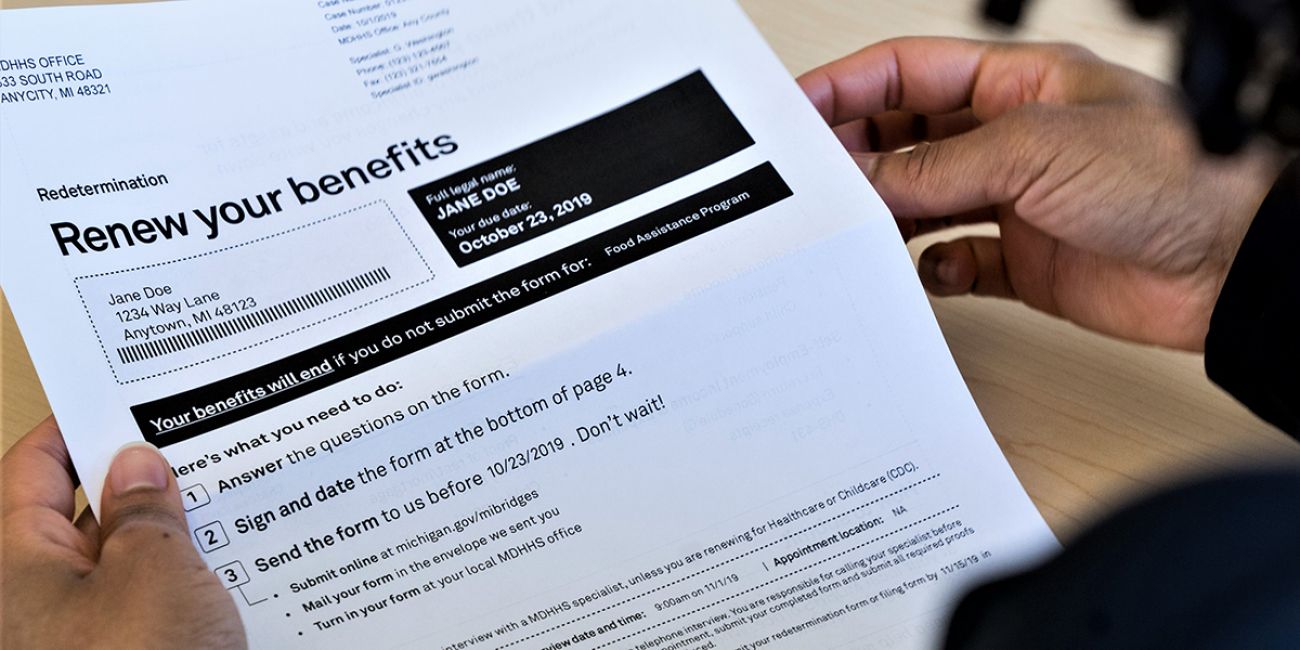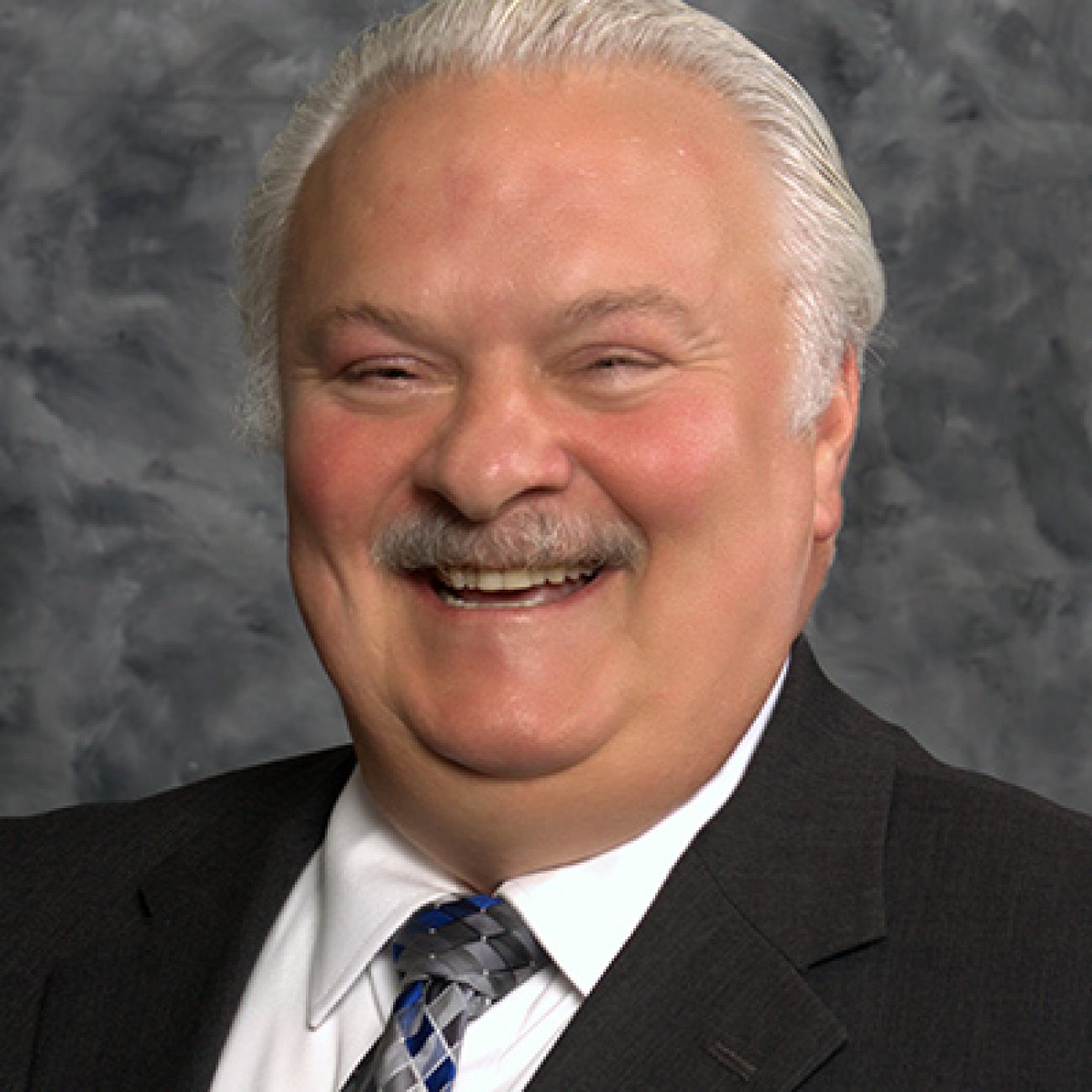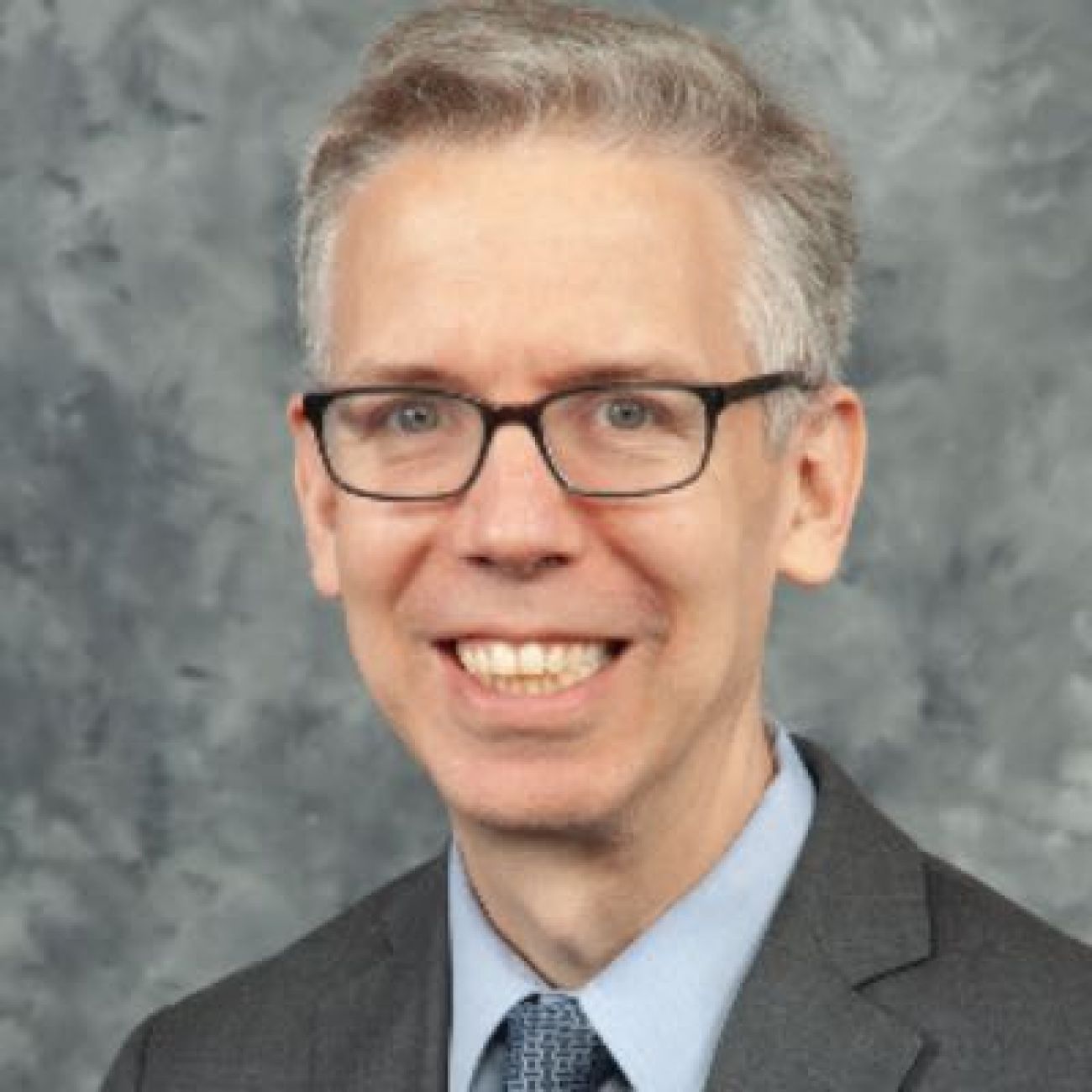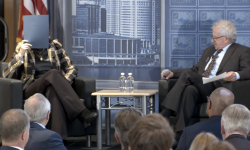MI government removes bureaucratic mumbo jumbo from benefit renewal form

After streamlining the longest public assistance application form in the nation two years ago, Michigan officials announced the rollout Wednesday of simplified renewal forms for some 2 million recipients of food stamps, cash assistance and other benefits.
At a glance
Here’s how many Michigan residents received public assistance in July from five programs administered by the Michigan Department of Health and Human Services:
Food assistance (SNAP): 1,234,935
Cash assistance (Family Independence Program): 58,076
Child care (Child Development and Care): 67,722
Medicaid: 1,838,716
State Emergency Relief: 6,428
Source: MDHHS
“We are committed to making the process of getting help as easy and simply as possible,” Robert Gordon, director of Michigan’s Department of Health and Human Services,” told Bridge Michigan.
“Michiganders face incredible challenges right now and getting state help shouldn’t add to those challenges.”
Earlier this year, MDHHS tested the revamped renewal forms – which are shorter and written in plain language – in field offices in Monroe and Oakland counties.
The result: Ninety-six percent of clients completed the new forms versus 73 percent who finished the old forms. There were 60 percent fewer errors and 50 percent fewer office visits related to the forms ─ a reduction that puts fewer clients and field office workers at risk from interactions that could spread COVID-19.
While alterations to a bureaucratic form may strike some as much ado about nothing, another state official said they’re more than changes on a piece of paper. He foresees they will help thousands keep benefits to which they are entitled, but might otherwise lose.
“It means they are going to be able to feed their family and shelter their family and provide for the health care needs of their family,” said Terry Beurer, a senior deputy director at MDHHS.

“By doing that, they are able to concentrate on other things like moving to work, concentrating on self-sufficiency.”
MDHHS contracted with Detroit nonprofit design consultant Civilla to redo the renewal forms, just as it had to rework the bulky application form 1171 required for most forms of public assistance in Michigan. As Bridge first reported in 2018, the old version of the 1171 forms stretched nearly 40 feet if laid end to end, encompassing 42 pages, more than 18,000 words and 1,200 questions.
The old form took hours to complete; spawned countless errors, office visits by frustrated clients and approval delays ─ in general, gumming up a public assistance system that one -third of Michigan’s residents will turn to at some point in their lives.
Civilla managed to pare the form to a much leaner and more digestible 18 pages.
Some 86 percent of users were able to complete the form in less than 20 minutes. Clients turned in applications at a 94 percent clip, up from 72 percent before.
Harvard University recognized the project to revamp the MDHHS application as among the top 25 government innovations in 2018.
Civilla CEO Michael Brennan told Bridge on Monday that MDHHS’s renewal forms were marred by similar problems, which so frustrated some clients they simply gave up.
“It often caused people to just set it aside. They would never get it done,” he said.
A seemingly small but significant hang-up: The old renewal forms headlined the application as “redetermination” ─ a term that may have resonated within some bureaucratic cubicles but mystified many clients.
“They really didn’t know what that meant,” Brennan said.
The old “redetermination” form followed that notice with more than a half-dozen bullet points and upwards of 150 words of instruction.
In contrast, the top of the revised renewal form reads in large, bold letters, “Renew your benefits.”

Just below: “Here’s what you need to do,” followed by three, simple, numbered steps.
MDHHS launched the refashioned renewal forms statewide last month, allowing those approved to receive food stamps, cash assistance, Medicaid, state emergency relief and child day care.
Brennan said the group fashioned the new forms with considerable feedback from clients and field workers on perceived flaws in the old forms, as well as how they could be corrected.
MDHHS Director Gordon said his agency has more work to do, adding that it is looking to revamp the entire benefit renewal process, from how field workers respond to calls to simplifying correspondence with clients so that its language is “clean and simple.”
“The work continues,” he said.
See what new members are saying about why they donated to Bridge Michigan:
- “In order for this information to be accurate and unbiased it must be underwritten by its readers, not by special interests.” - Larry S.
- “Not many other media sources report on the topics Bridge does.” - Susan B.
- “Your journalism is outstanding and rare these days.” - Mark S.
If you want to ensure the future of nonpartisan, nonprofit Michigan journalism, please become a member today. You, too, will be asked why you donated and maybe we'll feature your quote next time!




